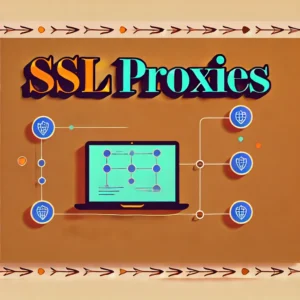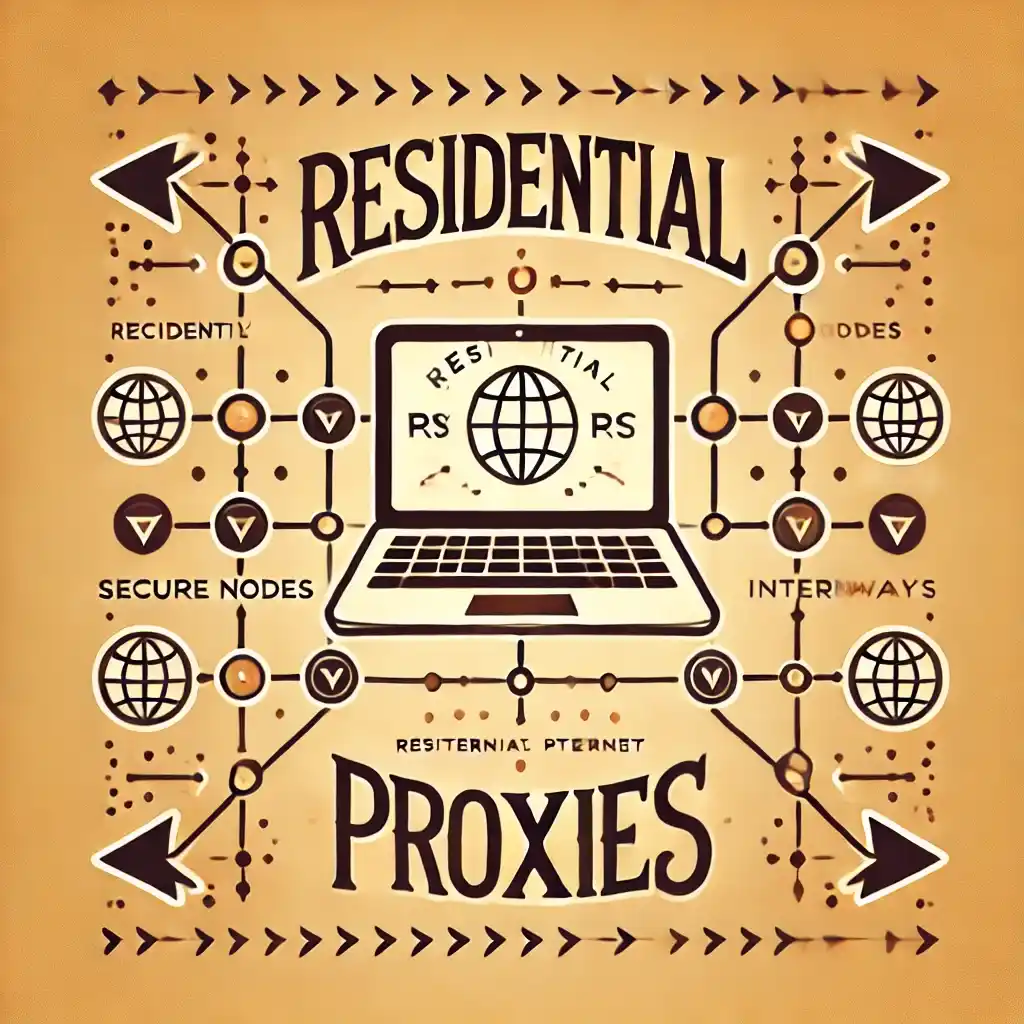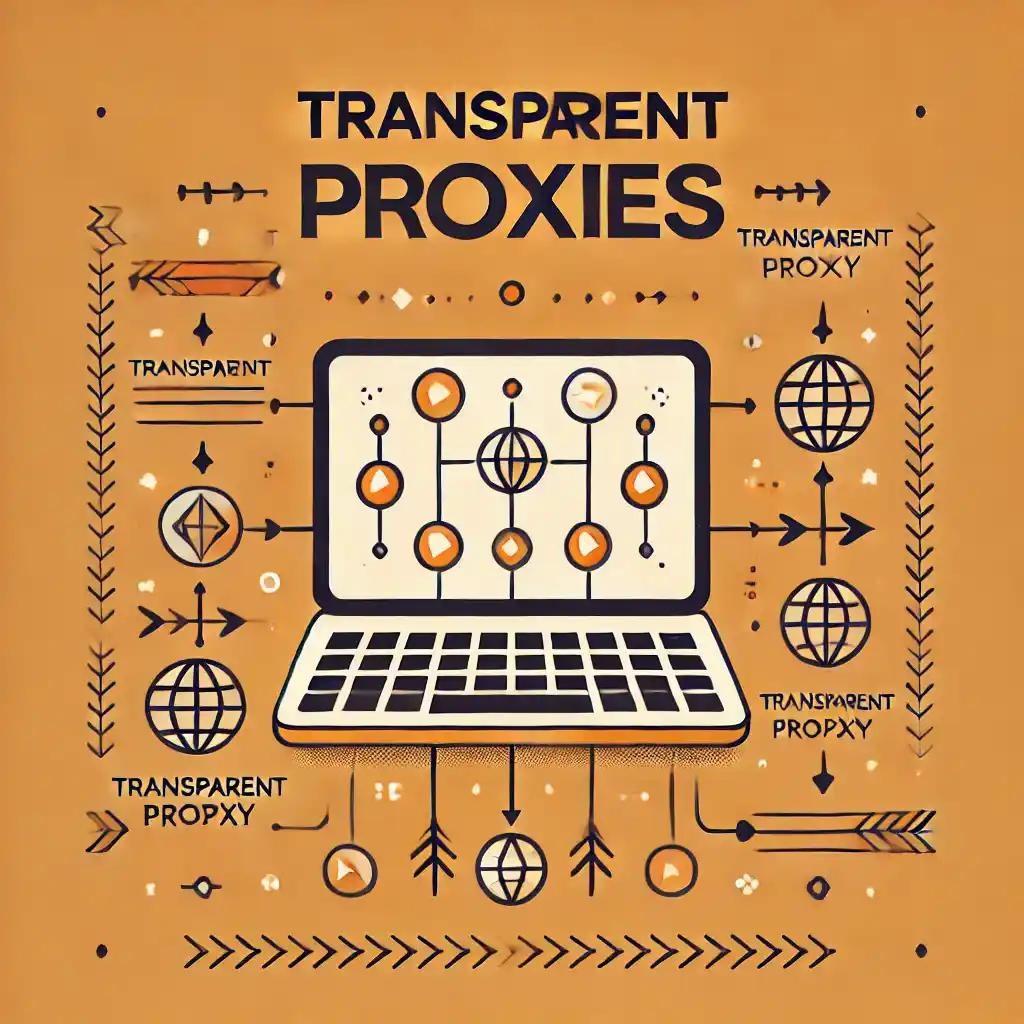Proxies are one of the most popular ways to mask your internet activity, access geo-blocked content, and protect your data. With a variety of proxy types available, it can be overwhelming to figure out which one best suits your needs.
This article will guide you through the most common types of proxies, explaining how they work, their pros and cons, and how to choose the best one for your specific use case. Whether you are a gamer, a student, or just someone looking to enhance online privacy, this guide will help you make an informed decision.
What is a Proxy?
A proxy server is essentially a gateway between you and the internet. When you use a proxy, your internet traffic is routed through the proxy server before it reaches the website or service you’re accessing. This adds an extra layer of anonymity because websites see the proxy server’s IP address instead of yours.
Here are some common reasons why people use proxies
- Privacy: To hide their IP address and browsing activity.
- Bypassing restrictions: Accessing websites that may be restricted by geographical location.
- Speed and bandwidth management: Some proxies can cache frequently accessed websites to improve load times.
Different Types of Proxies
Each proxy type has its own strengths and weaknesses. Let’s explore the seven most common proxy types to help you decide which one fits your needs.
HTTP Proxies

What are Hypertext Transfer Protocol (HTTP) Proxy Proxies?
HTTP proxies are designed specifically for web traffic. These proxies handle all requests that use the HTTP protocol, such as accessing websites.
- Pros:
- Ideal for general browsing.
- Great for bypassing website blocks.
- Quick and simple to use.
- Cons:
- No encryption, meaning it’s not safe for sensitive activities like banking.
- Only handles HTTP traffic, not other types of data.
HTTP proxies are best for casual browsing and accessing websites that may be restricted by your geographic location.
| Feature | HTTP Proxies | HTTPS Proxies |
|---|---|---|
| Use | General web browsing | Secure browsing |
| Encryption | None | Encrypted (SSL) |
| Best For | Bypassing basic website blocks | Online banking, secure browsing |
| Speed | Fast | Moderate |
HTTPS (SSL) Proxies

What are HTTPS Proxies?
Similar to HTTP proxies, HTTPS proxies encrypt the traffic between the user and the proxy server. They provide an extra layer of security by using SSL (Secure Socket Layer) encryption.
- Pros:
- Encryption ensures better privacy and security.
- Ideal for secure transactions or browsing confidential information.
- Cons:
- Slightly slower than HTTP proxies due to encryption overhead.
- Not as fast as proxies that do not offer encryption.
HTTPS proxies are best for online shopping, banking, or any activity involving sensitive data.
SOCKS Proxies

What are SOCKS Proxies?
SOCKS proxies are more versatile than HTTP or HTTPS proxies. They can handle any type of traffic, including email, file transfers, and torrenting.
- Pros:
- Works with all types of data, not just web traffic.
- Good for gaming, torrenting, and handling large volumes of data.
- Cons:
- Generally slower than HTTP proxies.
- Can be more complex to set up.
SOCKS proxies are best for users who need more than just web browsing, such as gamers, streamers, and those using peer-to-peer (P2P) services.
| Feature | SOCKS Proxies | HTTP Proxies |
|---|---|---|
| Use | All types of traffic | Web-only |
| Anonymity | Moderate to High | Low |
| Best For | Gaming, streaming, P2P | Browsing websites |
Residential Proxies

What are Residential Proxies?
Residential proxies use IP addresses from real devices like computers or smartphones. Because these IPs are associated with actual residences, they appear more legitimate and are harder for websites to block.
- Pros:
- High level of anonymity.
- Harder to detect and block.
- Cons:
- More expensive than datacenter proxies.
- Slower than datacenter proxies due to the nature of their setup.
Residential proxies are best for web scraping, sneaker copping, and accessing geo-blocked content without being easily detected.
| Feature | Residential Proxies | Datacenter Proxies |
|---|---|---|
| Anonymity | High | Low |
| Best For | High-security tasks | Bulk scraping, automation |
| Speed | Slower | Fast |
| Price | Expensive | Affordable |
Datacenter Proxies

What are Datacenter Proxies?
Datacenter proxies are generated from cloud servers rather than actual physical devices. These proxies are cheaper and faster than residential proxies but are easier to detect and block by websites.
- Pros:
- Affordable and fast.
- Suitable for bulk data tasks like web scraping.
- Cons:
- Easier to block compared to residential proxies.
- Lower anonymity due to their association with data centers.
Datacenter proxies are best for tasks that require speed and a low cost, such as SEO monitoring or bulk web scraping.
Transparent Proxies

What are Transparent Proxies?
Transparent proxies don’t hide the fact that you’re using a proxy and don’t mask your IP address. They are commonly used by organizations to monitor and control internet usage.
- Pros:
- Simple to use.
- Good for internal monitoring and filtering.
- Cons:
- No privacy or anonymity.
- Can compromise user security.
Transparent proxies are best for schools, businesses, and organizations that need to monitor internet activity without hiding the user’s identity.
| Feature | Transparent Proxies | Anonymous Proxies |
|---|---|---|
| Anonymity | None | Medium |
| Use | Monitoring and filtering | Privacy-focused tasks |
Anonymous and Elite Proxies
What are Anonymous Proxies?
Anonymous proxies hide your IP address but reveal the fact that you’re using a proxy. Elite proxies, on the other hand, provide the highest level of anonymity by hiding both your IP address and the fact that you’re using a proxy.
- Pros:
- Anonymous proxies offer a moderate level of anonymity.
- Elite proxies offer maximum privacy, making them undetectable.
- Cons:
- Anonymous proxies can still be blocked by some websites.
- Elite proxies are expensive and may require more configuration.
Anonymous and Elite proxies are best for privacy-conscious users who want to hide their identity and online activities.
Choose the Best Proxy for You
Now that you know the different types of proxies, how do you decide which one is best for you? Consider the following factors when making your choice:
- Purpose:
- For simple browsing, an HTTP proxy may be sufficient.
- For privacy and security, choose HTTPS or anonymous proxies.
- For gaming and streaming, SOCKS proxies are a good choice.
- For high anonymity tasks like web scraping or sneaker copping, residential or elite proxies are ideal.
- Speed vs. Security:
- If you need speed (e.g., for gaming or bulk scraping), go with datacenter or HTTP proxies.
- If security is your top priority, choose residential or elite proxies.
- Budget:
- Datacenter proxies are generally cheaper than residential proxies.
- If you’re on a budget, choose datacenter or transparent proxies.
| Proxy Type | Best For | Cost | Speed |
|---|---|---|---|
| HTTP Proxies | General browsing | Low | Fast |
| HTTPS Proxies | Secure transactions | Medium | Moderate |
| SOCKS Proxies | Gaming, P2P, streaming | Medium | Moderate |
| Residential Proxies | Sneaker copping, scraping | High | Slower |
| Datacenter Proxies | Web scraping, automation | Low | Very Fast |
| Anonymous Proxies | Privacy-focused browsing | Medium | Moderate |
| Elite Proxies | High-security tasks | High | Moderate |
Pros and Cons of Using Proxies
Proxies offer a range of benefits but also come with certain drawbacks, depending on the type of proxy you’re using.
Pros:
- Privacy: Proxies hide your real IP address, protecting your identity online.
- Access: Allows you to bypass geo-restricted content, which is especially useful for streaming and gaming.
- Control: Businesses and schools use proxies to filter or monitor online activity.
Cons:
- Speed: Some proxies, especially those offering higher security, can slow down your connection.
- Detection: Certain proxies, like datacenter proxies, are easier to detect and block.
- Cost: High-security proxies such as residential and elite proxies can be expensive.
Result
Choosing the right proxy depends on your specific needs—whether you need speed, security, or affordability. HTTP proxies are great for basic web browsing, while SOCKS and residential proxies offer better versatility for gamers and data-heavy tasks. For those focused on privacy, anonymous and elite proxies provide the best protection.
By understanding the strengths and weaknesses of each proxy type, you can select the best option for your online activities. Keep in mind your purpose, budget, and the level of security you require, and you’ll be well-equipped to navigate the internet with confidence and peace of mind.


